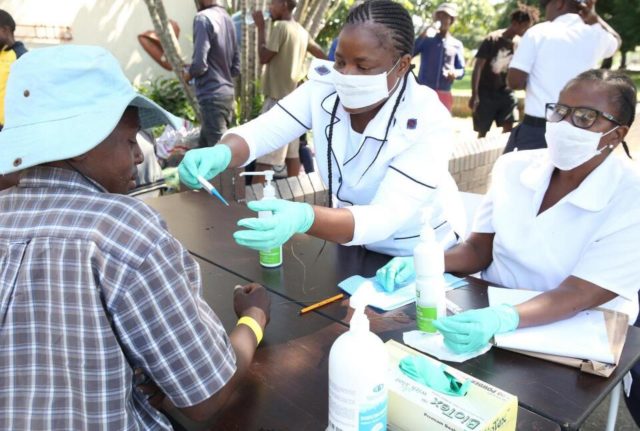Access to personal protective equipment (PPE) has been a priority, but as time has worn on other concerns have come to the fore.
THE FINDINGS of a national survey to ascertain the impact of Covid-19 on health workers in South Africa have been released – and confirm what the major concerns are.
From early in the pandemic, access to personal protective equipment (PPE) has been a priority, but as time has worn on other concerns have come to the fore.
Health workers live daily with the fear of contracting the coronavirus or infecting their families and the physical and emotional demands, including long working hours, cause psychological distress, fatigue and burnout. Nursing practitioners, according to the survey, have been the most severely affected.
The “National Survey of South African Healthcare Workers’ Response to Covid-19” was conducted by the Human Sciences Research Council (HSRC), in partnership with the University of KwaZulu-Natal’s Nelson R Mandela School of Medicine, between April 11 and May 7 with the findings released during an online seminar last week.
The research reached at least 7 607 respondents in all nine provinces and looked at the following issues: Levels of knowledge, awareness and attitudes to Covid-19; training received to respond to Covid-19; access to and the use of protective equipment in the workplace; perceptions of risk in the workplace; concerns in relation to Covid-19; and the health and psychosocial well-being of the respondent.
The respondents worked across the public and private sector, NGOs and civil society, with 40% being nurses. Eighty percent of respondents were female and 60% black African, with 60% based in urban formal areas – half from the four most affected provinces.
Findings around knowledge of the novel coronavirus and training revealed some gaps which, with issues of personal protective equipment, added to respondents’ stress.
Asked where they source their information on Covid-19, health professionals in urban formal areas – especially medical practitioners – relied on the National Department of Health, the World Health Organization and Centres for Disease Control websites, as well as scientific journals. Other respondents said they used news websites and social media.
While half the professionals in the survey were confident in their knowledge about Covid-19, nursing practitioners lacked more confidence than those in other categories, such as medical practitioners. There was a correlation between those not confident in their overall knowledge and those who had a higher perceived risk of contracting Covid-19.
Knowledge of the symptoms of Covid-19 was good at the time of data collection; 40% of respondents, however, did not know Covid-19 was airborne and 40% did not know its correct incubation period.
About two-thirds of health professionals reported receiving some form of Covid-19-related training, such as screening and isolation procedures, but only half said they were trained in treatment guidelines. There was a large difference in the training received between medical and nursing practitioners on treatment guidelines, case definitions as well as tests that should be done to confirm diagnosis.
Risk perception is lowest in Gauteng and the Western Cape, the provinces with the highest proportions of health professionals who work in urban formal settings, but also the highest case loads.
The four biggest risk factors were seen as being their profession in health care, the behaviour of the public, inadequate protective equipment and their place of work. Three-quarters of health professionals felt their job placed them at higher risk than the general population while one-third felt that where they worked (such as in a hospital) put them at greater risk.
Two-thirds felt that the general population not following the transmission guidelines – such as sanitising, wearing a mask and physical distancing – put health professionals at risk.
The latter indicated their lack of confidence in the availability and accessibility of protective equipment. Overall, over two-thirds of participants expressed the need for all forms of protective equipment, with 80% saying they needed eye shields, gloves and N95 masks. Only half the respondents were confident in their personal ability in the correct use of protective equipment.
The level of concern for health and well-being was different by profession, with nearly half of nurse practitioners extremely concerned about personal health and their family members with 60% concerned they may pass on infection to family members.
Nurses reported the lowest general health and well-being compared to medical practitioners and other health care professionals.
A quarter of nurse practitioners experienced severe psychological distress with health professionals working in the public sector experiencing higher distress than those working in the private sector.
Health professionals who reported high general well-being reported low levels of psychological distress while those who reported high psychological distress reported low levels of general health and well-being.








